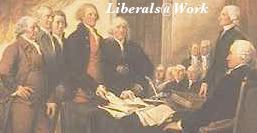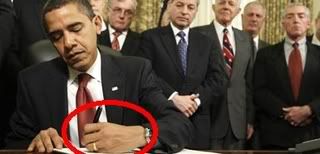I'd suggest everyone read Marc Ambinder's piece about Why Did Edwards Do This, Pros and Cons.
Also, MarKOS looked at this from a couple angles, thinking it was stupid at first, but coming around after studying it for a bit. He's nervous for our boy, but thinking it through.
MyDD's Jonathan Singer has his own thoughts.
But mostly, you should read the following:
==================================================
To: Staff & Supporters
From: David Bonior
Date: September 28, 2007
Re: Public Financing
Yesterday, Sen. Edwards announced his decision to seek public financing for the primary election. John himself thought long and hard about this decision and made it with the firmest of convictions. He believes this is the right thing to do – not only for this campaign, but for the American political process. The leadership of this campaign shares his convictions and endorses his decision.
I want to assure you that we are doing this from a position of strength. I thought it would be useful to cut through all the media speculation and outline as clearly and concisely as possible exactly why we made this decision and why we believe it is a smart move strategically for this campaign.
Why did we do this?
Quite simply, we did it because it is the right thing to do.
As you have heard John say many times over the years, elections should be about ideas – not money. And the focus on money in this election is frankly obscene. Now, more than ever, candidates for president should be judged on their vision, character and personal integrity – not how much money they can throw at voters in the form of advertising and fancy Washington consultants. And, in one of the most important elections in our lifetime, candidates for president should be spending these last few months leading up to the primary election focused on meeting with voters and discussing their ideas and their vision to change America – not caught up in a fundraising contest.
The American people agree – and they want things to change. They want a president who is accountable to them, not to big corporate interests and Washington lobbyists.
Why are Hillary Clinton and Barack Obama not doing this?
It’s a good question, and one that the American people deserve to have answered. John believes Senators Clinton and Obama, who often talk about their support for public financing, should join him and prove that they mean what they say.
When John challenged Senator Clinton to join him in ending the practice of candidates accepting money from Washington lobbyists, she said that wasn’t the answer – she said the answer was public financing. And just last week, Senator Clinton said that she believes public financing is the way to fix the broken system of corruption and buying influence in Washington and should be the law of the land. Well, we already have a public financing system for presidential campaigns. With this action, John is putting his money where his mouth is. The question is: When are the other candidates going to do the same?
Why now?
It became clear if we didn’t lead the way by example, no one else would. There is too much at stake in this election for the status quo to prevail.
Candidates can speak to the virtues of public financing – in theory – until they are blue in the face. But until someone is willing to step up and lead the way toward changing the way the system works, you can rest assured that things will remain the same.
John has never taken a dime of campaign money from PACs or Washington lobbyists – in this campaign or in any other campaign. This gives him unmatched credibility in calling on all Democratic presidential candidates and the Party itself to do the same. He supports public financing of campaigns as a necessary step to reduce the influence of money in policy making, so participating in the public financing system is simply the right thing to do.
What does it all mean?
Understand this: This in no way handicaps us in the early primary states, and it does not put us at a disadvantage going into the general election. If anything, this decision will help us win the nomination in two ways: our strength with the grassroots means we will get a boost not available to candidates who depend on large contributions; and we will be running the campaign in a way that reinforces John’s central campaign message.
Under the public financing system for presidential primaries, once a candidate demonstrates broad-based public support by raising $5,000 of matchable contributions in each of at least 20 states, the government will match up to $250 of an individual’s contributions to that candidate. In return, the candidate agrees to limit campaign spending for all primary elections, limit campaign spending in each state and limit spending from personal funds to $50,000.
The system of public financing was put in place after Watergate as a way to take power away from the big money players and give it back to candidates who have strength in grassroots. That’s what John’s campaign is all about. We have raised millions of dollars – more than any other Democratic campaign at this point in any previous election. As I said, we have raised this record amount without taking any money from PACs or Washington lobbyists. Just as important, 90 percent of our contributions have come from donors giving $100 or less. This is the type of real grassroots strength the public financing system was meant to encourage and reward. By focusing on small contributions and the grassroots campaigning, the boost we will get from being able to receive federal matching funds puts us in a better financial position for the nomination campaign.
Does this change our strategy?
No. We are on track and moving forward with our four-state strategy, focused on winning in Iowa, New Hampshire, South Carolina and Nevada. We’ve said all along that we needed to raise $40 million before Iowa. With public matching funds we are very likely to exceed that goal.
But the key thing to remember is no candidate can buy votes in these states. You have to earn them with bold vision and real ideas. Substance counts a lot more than money in the places where voters can look you in the eye, judge you face to face, and question you in detail about your plans for the country. And when it comes to substance, there’s no contest. John has led this race on ideas – from universal health care, to the war in Iraq, to education, global warming and helping American workers. With this decision, he extends his leadership into the critical area of restoring the essence of our democratic government.
John’s leadership on issues is precisely why our momentum continues to grow in the states where he has been campaigning. And this growing momentum will carry us through to the general election.
What about the state spending limits?
As a campaign that has always had a plan to win with less money than its rival campaigns, we were already working within a budget that makes it possible to achieve our goals and easily stay within the spending limits. We have studied the numbers extensively, and we are nowhere near exceeding these limits. The FEC rules are much more generous than many seem to understand. For example, staff salaries and staff travel do not count against the state limits – which is perfect for a grassroots campaign. Half of all expenditures in a state don’t count against the state limit because they are treated as exempt fundraising costs. And even the total cost of television and radio advertising does not count against the limits for individual states. In short, the spending limits are actually quite manageable, if you’re smart about how you spend the money you are allowed to spend.
What happens between February 5th and the convention?
Rest assured, we are prepared for this campaign to go the distance. We have a comprehensive campaign spending plan is smart and targeted and based on a strategy to ensure that we not only have enough money on hand to clinch the nomination but also have a reserve to take the fight to the Republican nominee in the spring. To give you just one example, part of this campaign is about restoring the power of the Democratic Party. Since the party can spend money independently of its Presidential nominee, a stronger Democratic Party will be in a position to meet the challenge of waging an effective campaign on behalf of John Edwards and every other Democratic candidate.
What happens in the general election?
Make no mistake – we are taking a principled stand on this issue. John Edwards believes the best thing and the right thing would be to operate the campaign under the public financing rules for the entire presidential campaign. But he also understands that almost none of the Republican candidates share this commitment. Accordingly, we will continue to raise money for the general election so we will be ready to compete against the Republican nominee.
Once we win the nomination, John will challenge the Republican nominee to join him in accepting public financing. Quite frankly, it’s a fight we’d welcome. If they refuse, we’ll cross that bridge when we come to it and make the decision at that time about whether to accept public financing. But you can be sure that we will run a campaign that is aggressive, adequately funded, and successful.
I look forward to that day. And I know that this decision is the right way to get us there.
9/28/07
Public Financing, The Right Thing To Do.
By: Mark W Adams
Subscribe to:
Post Comments (Atom)
 Exposing the lack of compassion by conservatives and
debunking right wing hypocrisy at every opportunity.
Exposing the lack of compassion by conservatives and
debunking right wing hypocrisy at every opportunity.





 Subscribe via Email
Subscribe via Email
1 Comment:
Kos may have been "coming around to it" last week, but that was then, this is now:
"Fact is, whoever wins the nomination would experience an unprecedented flood of small dollar donations, yet these candidates [Dodd, Richardson, etc.] are likely to follow the Edwards model and surrender the summer to the Republicans, when the DNC will still lag the RNC and the GOP will have a whole new batch of 527s (like "Freedom Watch") to match our own. Meanwhile, the Republican nominee will be able to take on ours without the Democrat able to directly respond.
"In a cycle when the traditional GOP money advantage has been turned on its head and Obama alone has generated more contributors than just about the entire GOP field combined, there's no reason for us to give up what's shaping up to be a massive edge in the money race."
In other news, I had a chance to hear Wes Clark being interviewed on NPR. He'd be a decent VP pick for anyone who gets the nomination.
POST A COMMENT